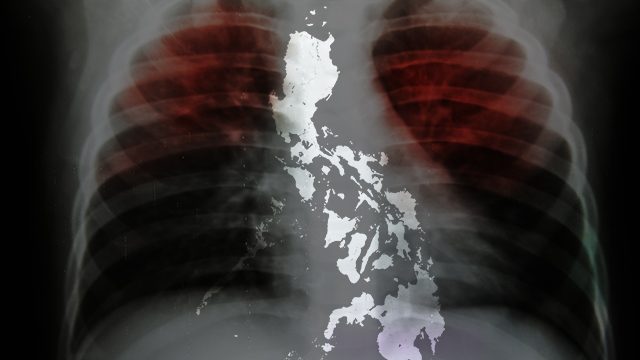SUMMARY
This is AI generated summarization, which may have errors. For context, always refer to the full article.

NEW YORK, USA – The Philippines joined countries around the world in approving the first-ever United Nations declaration committing to treat 40 million people with tuberculosis (TB) within 4 years and end the global health epidemic by 2030.
The political declaration, approved at the recently concluded UN High Level Meeting on TB on Wednesday, September 26, is the world’s most ambitious target to date, committing to treat 40 million people with TB by 2022 in line with the Sustainable Development Goal (SDG) target of ending TB worldwide by 2030.
TB, a bacterial infection that primarily attacks the lungs, was first discovered in 1882. Despite being preventable, treatable and curable, TB persists to be the world’s leading infectious disease killer. In 2017, TB claimed about 1.7 million lives worldwide.
“Of these (1.7 million), roughly 25,000 are Filipinos – enough to fill Madison Square Garden to full capacity,” Philippine Health Secretary Francisco Duque III, said at the UN High Level Meeting (UN HLM) on TB.
“This is unacceptable. Not only does this jeopardize the Philippines’ vision to be among the healthiest nations in Asia, but also compromises the country’s goal of attaining middle income status by 2040,” Duque added.
The Philippines commitment to end TB
An estimated one million Filipinos are infected with TB. The Philippines is listed among the top 8 countries in the world with the most number of TB cases. (READ: Philippines Tuberculosis profile)
At the UN HLM, Duque committed that the Philippines would take 3 primary approaches to address its TB epidemic:
- Address the socio-economic determinants and health determinants that drive TB by implementing a High Level National Coordination Committee comprised of various multi-sectoral government and private organizations.
The 2017 Global TB Report shows that not enough progress has been made in eradicating TB since 2007 owing to factors that also drive TB such as undernutrition and poverty conditions that have remain unchanged.
- Improve TB screening, diagnostics and treatment by scaling up rapid molecular tests and one-stop solutions.
This, in addition to including TB in PhilHealth’s list of reimbursable services, is seen to reduce the catastrophic costs of TB among those infected with it. Studies show that 35% of TB-affected households spent at least 20% of their household income on costs related to TB, rising to 67% for those with drug-resistant TB.
- Enforcing mandatory notification of TB by all care providers as provided for in the 2016 TB law and publication of performance reports on public domains.
About one-third of TB care in the Philippines is rendered by the private sector. However, unstandardized reporting mechanisms have resulted in reporting gaps.
More than 240,000 people with TB in the Philippines are “missing” or have gone undiagnosed or are diagnosed but are not reported to public health surveillance systems.
Duque also committed to provide adequate social protections to those living with TB as as well as platforms that would encourage patient groups to speak up about their experience and help in addressing stigma and discrimination faced by people with TB.
“With these, we are confident and hopeful that we can find and treat at least 2.5 million Filipinos with TB by 2020, reaching our target of 90% treatment coverage rate and contributing to the attainment of the SDG 2030 goal for TB,” said Duque. (READ: U.S. and Philippines: Friends, partners, and allies)
Advocates say TB response is insufficient
Advocates attending the UN HLM pointed out that gaps remain in the Philippines’ reponse to TB.
“This highly medicalized approach to the TB response will not address social determinants of TB and might actually run the risk of violating the rights of the community in its need to meet targets on number of people tested and treated,” said Mara Quesada Executive Director of ACHIEVE (Action for Health Initiatives, Incorporated), a non-governmental organization working on public health issues in the context of human rights.
“The approach of the TB response in the Philippines has neglected to enable communities vulnerable to and affected by TB to be equal partners in the response. There is very limited civil society organization (CSO) engagement,” said Quesada.
Additionally, Quesada pointed out, the Philippines needs to think about addressing financing mechanisms apart from PhilHealth to soften the economic cost of TB on those affected by it. At the moment, PhilHealth coverage does not include multi-drug resistant TB (MDR TB) and extensively drug-resistant TB (XDR-TB), a rate type of multi-drug resistant TB.
“There is no strategy to address the social issues like poverty, inequality, stigma, and even criminalization that make people vulnerable to TB,” said Quesada. – Rappler.com
Ana P. Santos is currently in New York covering the UN High Level Meeting on Tuberculosis with support from the Stop TB Program.
Add a comment
How does this make you feel?
There are no comments yet. Add your comment to start the conversation.